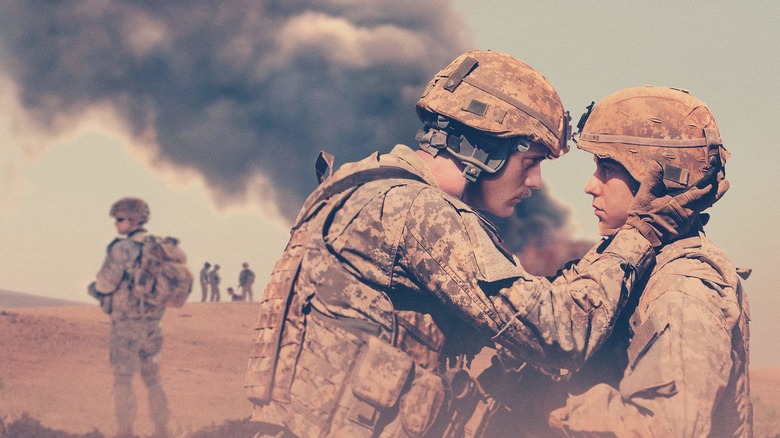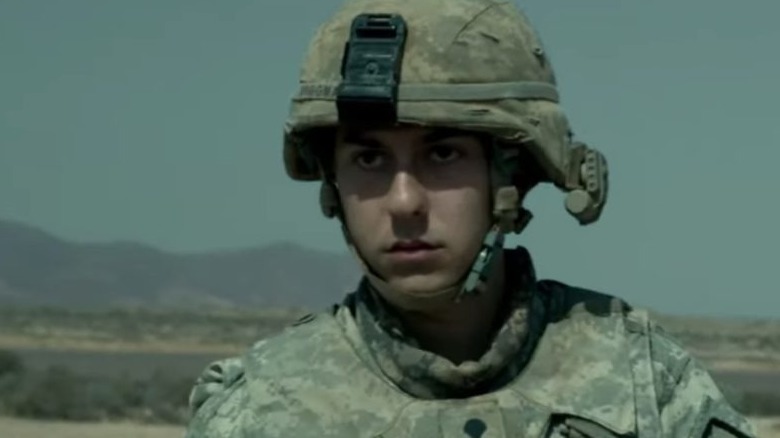A Film Based On A True Story Is Exposing A Dark Crime Of The War In Afghanistan On Netflix
In 2013, writer-director Dan Krauss decided to make a documentary about the Maywand district murders during the war in Afghanistan. The atrocity had taken place during the early months of 2010, wherein a group of U.S. Army soldiers — who called themselves The Kill Team — murdered three Afghan civilians in cold blood and claimed the mutilated body parts as trophies. Krauss' documentary, titled "The Kill Team," dives into the psychological makeup of soldiers at war, the specific socio-cultural factors that contribute to callous aggression and violence, and how this brand of sociopathy culminates in tragedies like Mayward.
The documentary is, first and foremost, an exposé of the rot that grips young military men, who often delude themselves into feeling invulnerable while committing heinous crimes. However, not everyone in the platoon responsible for the Maywand murders was willing to cover up the crimes, including 21-year-old Adam Winfield, who informed his father of the first murder, which led to the Army being alerted soon after. Krauss ended up dramatizing the events explored in the documentary in a film also titled "The Kill Team," which premiered during the Tribeca Film Festival and was distributed by A24. And now that film adaptation of the documentary "The Kill Team" has made it to the Top 10 Netflix charts.
The atrocities of war
While Krauss' documentary sticks to the facts of the case, his feature film dramatizes some aspects, including changing the names of the actual people involved. Here, Winfield is Andrew Briggman (Nat Wolff), who goes along with everything until his conscience gets too loud of his own liking, especially after new Staff Seargent Deeks (Alexander Skarsgård) encourages the platoon to adopt a ruthless, morally bankrupt approach to victory. Krauss' film does a solid job of portraying how atrocities become normalized within the context of war, where sociopathic crimes are redefined as "righteous" acts of bravery meant to "redeem" the average soldier.
While the merits of the film are plenty, Krauss' documentary feels more chilling for a reason — there are dramatic frills for the sake of art, as it dives into the harrowing details of the incident without compromise. Winfield's moral dilemma is also the focus here, as the man had to contend with threats from his superiors and an escalating sense of guilt by association. Krauss provides us with details of legal proceedings that exposed these crimes to the world, along with interviews of soldiers who were involved with the situation, their testimonies emerging as both infuriating and informative.
"The Kill Team" is no comfort watch, but its shocking and difficult subject matter is essential to engage with, as it holds up a mirror to the fact that callous acts of wartime cruelty do not exist in a vacuum. "The Kill Team" feature adaptation is currently streaming on Netflix in the US. As for the documentary, you can catch that streaming on Peacock, Tubi, and Kanopy.

